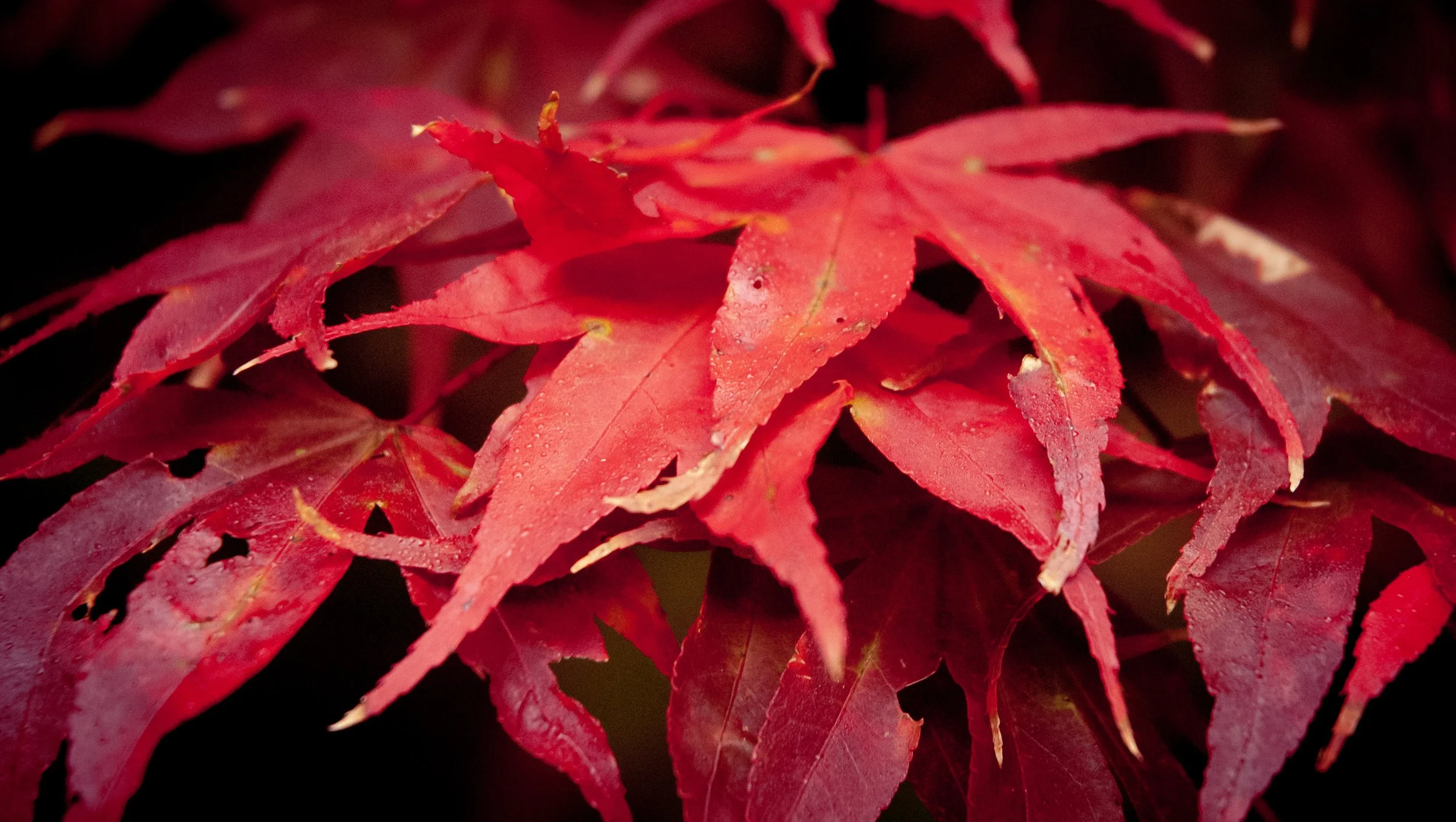(re)New
Ashridge: Nikon D200
“Autumn is a second spring, when every leaf is a flower.”
(Albert Camus)
Raking the autumn leaves is my guilty pleasure.
After the brilliance of summer and the abundance of the garden harvest, the leaves glow in celebration and then elegantly fall.
As each leaf settles on the grass, I rake them into piles and feel delighted that my job will never be done. The work becomes an end in itself as I tune into the exquisite beauty of a dying process held within an experience of circular time. Each year, when the last leaf is on the pile, the heap decays and we become weatherbound until spring sunshine warms us again. Then the leaves become fertiliser for our soil as we prepare for another turn of the earth.
Life repeats and the leaves become my history and my future.
The everyday simplicity of tasks framed by gratitude, care and service can often lie way beyond the transactional experience of our contemporary organisations. Here, linear time brings urgency, striving and filled days. We grab a few moments together, snatch a few words, eat on the go and conduct business on the run.
But, as I concern myself with ‘productivity’ and ‘billing hours,’ I strip away the possibility of meaningful relationships and genuine, mutual collaboration. I compete and contest, becoming a lesser version of myself as my conversations become evermore instrumental and agentic. I need to get things done; I need to get my things done.
Through all of this, I struggle to stay present; words are spoken and heard but arrive without substance.
And the forgettable lives of others become the items of my agenda.
I know that I can’t hold this superficial, extractive approach as the foundation for my way of being in the world. I need to ease my grip on stories that advocate efficiency and effectiveness, and find my way towards a more sustainable, relational and equitable way of living.
Robin Wall Kimmerer tells us that:
“We are all bound by a covenant of reciprocity: plant breath for animal breath, winter and summer, predator and prey, grass and fire, night and day, living and dying. Water knows this, clouds know this. Soil and rocks know they are dancing in a continuous giveaway of making, unmaking, and making again the earth.”
As the leaves fall on my shoulders I’m reminded that, deep in my bones, I recognise their story of impermanence and ecological integrity.
So once again, full of appreciation of their beauty, I will rake up the leaf piles and look forward to next year’s renewal, and be mindful of the time when we will become compost together.
Notes:
Take a look at this short appraisal of ‘utilisation cultures’ by John Amaechi OBE and their implications for the future of work.
As our life-giving systems appear to approach collapse, I need to hold on to my capacity to act from a position of hope. So, as I contemplated the continuity of my experience and the powerful role of story, Rebecca Solnit’s New Statesman article on hope and despair in climate activism came to mind. Solnit quotes Walter Brueggemann: “Memory produces hope in the same way that amnesia produces despair.”
Finally, if the deeply participative perspectives of Robin Wall Kimmerer attract you, please take a look at the delightful ‘Braiding Sweetgrass’ - a well considered best seller.














